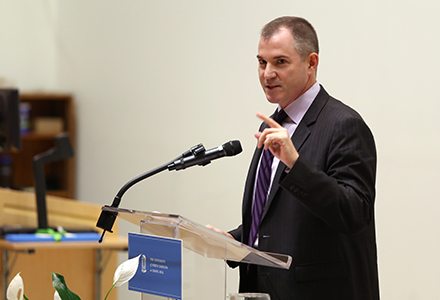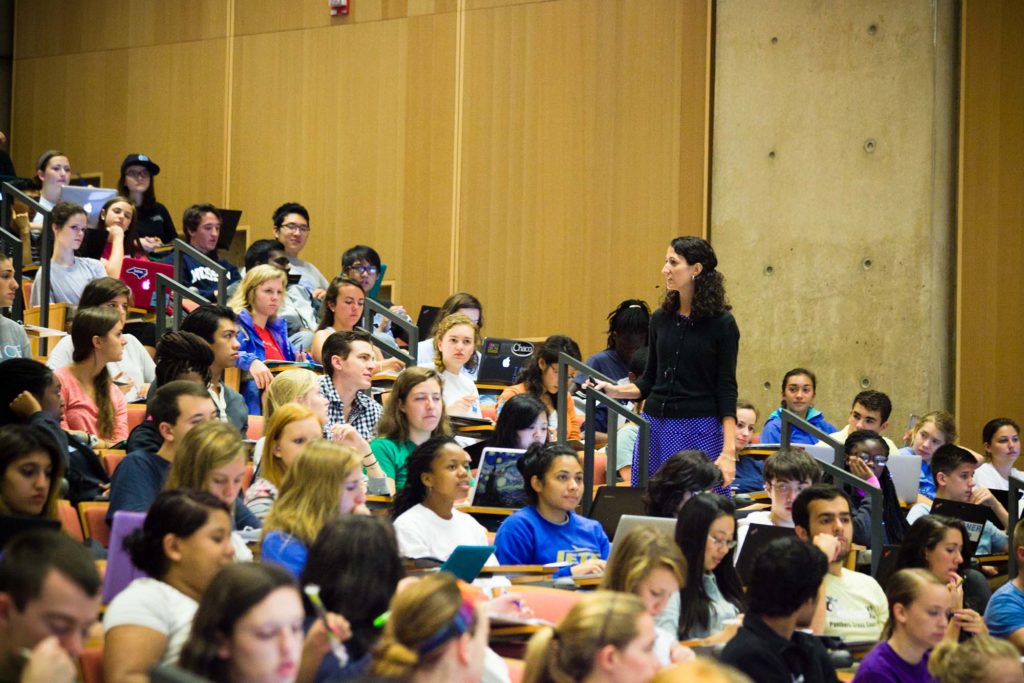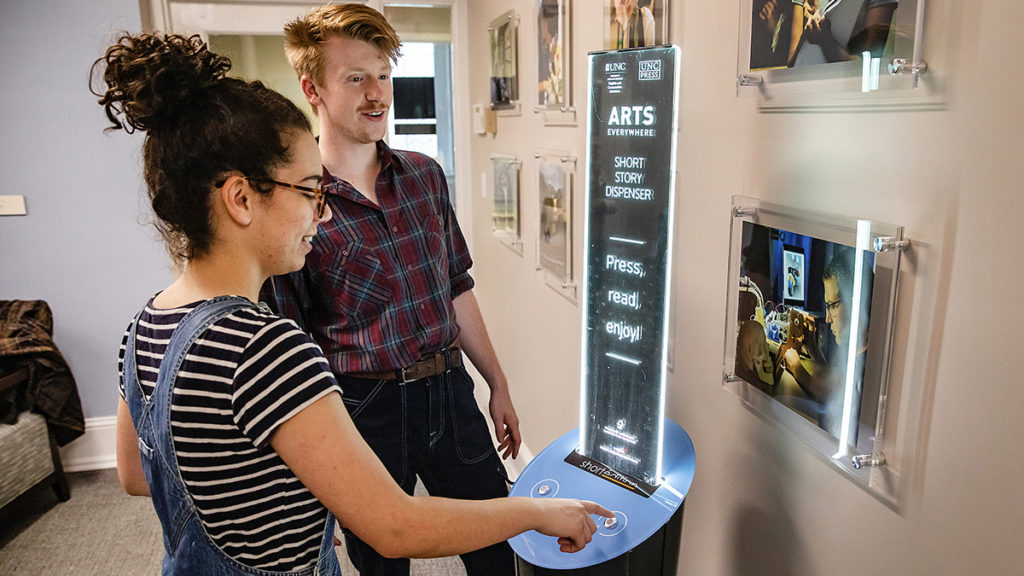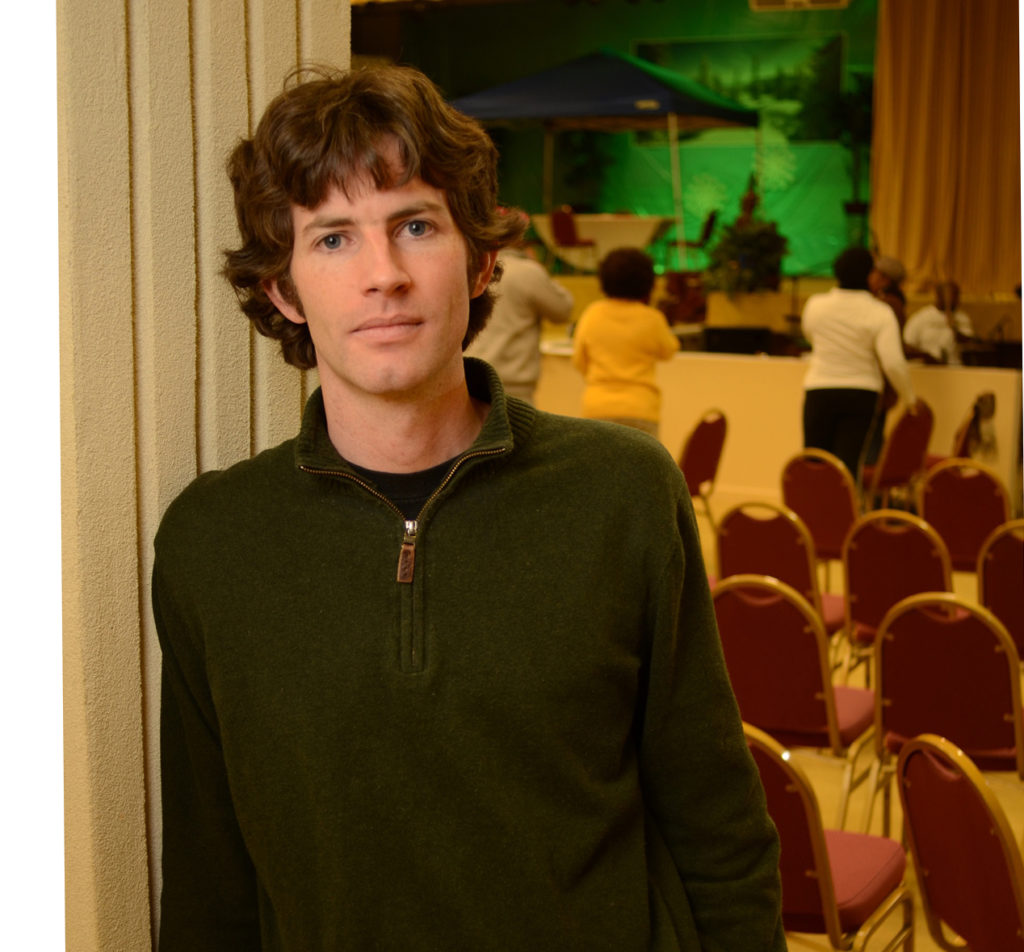
As technology continues to bring the world to our fingertips, our culture is becoming more fragmented and losing the common grounds that connect people.
As a writer with The New York Times, Frank Bruni has seen how these technological innovations are leading people to burrow deeper into a single interest — paying attention only to the opinions that fit their interests and limiting their experiences.
“We’ve becoming increasingly invested in one way of thinking and one type of diversion and one type of experience,” Bruni told the nearly 400 people who attended his lecture at the University of North Carolina at Chapel Hill on Thursday. “We web ourselves ever more tightly to a particular perspective and having these ever more specialized microcommunities of interest.”
This issue and the course for reversing that trend was the topic of Bruni’s speech, “Digital Cocoons, Political Polarization and the Path Back to Common Ground.”
Co-sponsored by the Carolina Women’s Leadership Council, Honors Carolina and UNC Student Government, the 90-minute talk at the Genome Sciences Building was the most recent installment of the annual Eve Marie Carson Lecture Series. The series honors the memory of the late student body president who first established the program as the “Distinguished Speakers Series” in 2007.
Each year, the student-run lecture brings national and international speakers with distinguished ideals and accomplishments to the University.
“We are coming together — with our student’s direction — to honor the memory of a remarkable young woman, Eve Carson,” said Chancellor Carol L. Folt. “It is a great regret for me that I never knew her. But of all the people I’ve heard about at Carolina, she is a shining light.”
A Carolina alumnus, Bruni wrote for The Daily Tar Heel and received a Bachelor of Arts degree in English in 1986. Bruni also earned a master’s degree in journalism from Columbia University Graduate School for Journalism.
Bruni has spent two decades at The New York Times, where he has served as a White House correspondent, chief restaurant critic, Rome bureau chief and staff writer for the Sunday magazine. As an op-ed columnist since 2011, Bruni writes about politics, higher education, gay rights, religion, entertainment and football.
During his presentation at Carolina, Bruni discussed how the Internet and digital technology have influenced people to contain themselves to narrow niches. The trend, he explained, plays out in politics, hurting society.
“There’s so much out there that fits your exact ideological profile that you can think that you have a robust news consumption — you can think you’re reading widely, when really you’re just reading the same thing over and over again,” he said.
This trend of limiting information circles has led to individuals containing themselves to groups that have the same ideologies as themselves.
Liberal arts education, Bruni said, could help end this trend.
“This is a kind of place that really can push back at it,” he said. “That’s the whole point of a liberal arts education if it’s pursued the right way — it’s to take you out of your comfort zone. You should pursue it that way. Migrate to a department that you wouldn’t normally migrate to. Check out an organization that you might not intrinsically be drawn to. Take a course that sounds completely exotic. Take risks.”
Adventuring into new topics and learning to value different views will be the key to a more successful and positive society.
“If you do that, you’ll be paving the way for society in which we’re not all living in such economically and racially humongous communities,” Bruni said. “… You’ll be paving the way for a more interesting life — one that recognizes the value of improvisation, digression, serendipity and variety. It’s when you surprise and test yourself, it’s when you deliberately exit your comfort zone, it’s even when you scare yourself, that you learn new things and savor the fullness of life.”
Story by Brandon Bieltz, photos by Melanie Busbee, Office of Communications and Public Affairs




